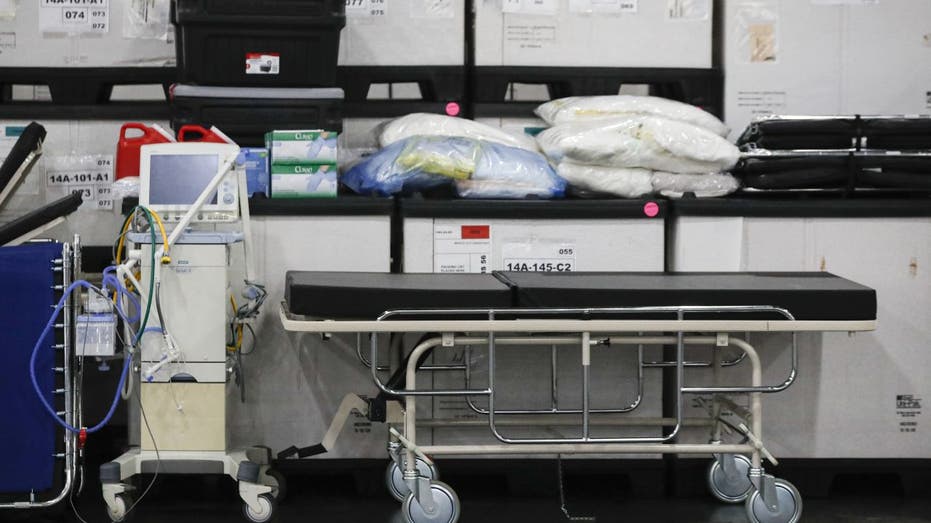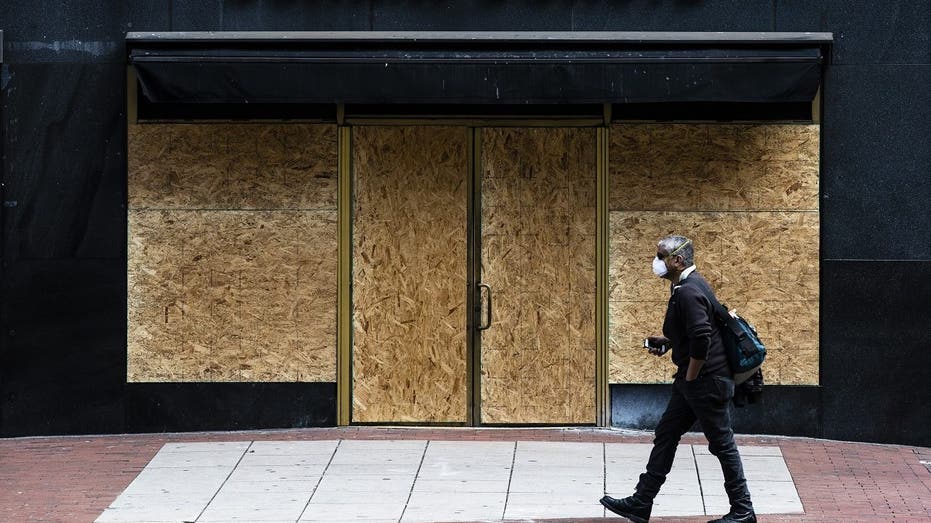Pressure mounts on insurance companies to pay out for coronavirus
Regulators are pushing insurers to expand coverage under personal-car policies to also cover certain commercial activity
Get all the latest news on coronavirus and more delivered daily to your inbox. Sign up here.
Lawmakers and regulators are pressuring insurers to go beyond the legal language of policies to get cash to Americans amid the mounting cost of shutdowns from the coronavirus pandemic.
In at least three states, lawmakers have proposed legislation to force insurers to pay billions of dollars for business losses tied to government-ordered shutdowns. In other states, regulators are pushing insurers to expand coverage under personal-car policies to also cover certain commercial activity, such as delivery of takeout meals by owners and employees of restaurants that are struggling to survive bans on dine-in eating.
TRUMP SIGNS $2T CORONAVIRUS RELIEF PACKAGE
Some regulators have declared moratoriums on cancellations and nonrenewals of policies. And some are urging car insurers to lower people's bills. These states note that policyholders now working from home don't have the commutes they used to and thus aren't on the roads as much.

This Monday, March 23, 2020, file photo shows medical supplies and a stretcher displayed before a news conference at the Jacob Javits Center in New York. (AP Photo/John Minchillo, Fle)
This push comes despite specific contractual exclusions in most standard policies for claims stemming from viruses. As a result, some insurers are threatening court challenges over these efforts to rewrite policies and provide benefits that weren't priced in.
"If elected officials or courts require payment for perils that were excluded and for which no premium was ever collected, catastrophic results are likely to occur and we may deal with a second crisis: insurance insolvencies and impairments," said Charles Chamness, president of trade group National Association of Mutual Insurance Companies.
THESE COMPANIES ARE HIRING RIGHT NOW
While insurers are pushing back hard on some fronts, they are accommodating in other areas.
Allstate Corp., Berkshire Hathaway Inc.'s Geico, Hartford Financial Services Group Inc., Liberty Mutual Insurance, Progressive Corp. and USAA are among insurers that have extended deadlines, waived fees or taken other steps to help people avoid cancellations for nonpayment. Some also are approving the use of personal vehicles for food and other essential deliveries.
In Massachusetts, state Sen. James Eldridge said that the depth of the coronavirus pandemic has made bold legislative action a necessity. A bill he has proposed would require insurers to pay so-called business-interruption claims to small businesses even if policies contain virus exclusions.
"If we don't find a way to get some financial relief to the restaurant industry, many of these restaurants won't come back, and that is bad not only for restaurant owners and their employees but the insurance industry as well," Mr. Eldridge said.
Under his bill, insurers would apply to the insurance commissioner for reimbursement for payouts, and the commissioner would be authorized to make assessments against business insurers to cover the amounts paid, possibly over years.
Such legislation emerged in Ohio as well, following an unprecedented effort earlier in March by New Jersey's state Assembly to overwrite contractual exclusions in standard small-business policies in the Garden State. The New Jersey bill was tabled as potential legal challenges loomed.
STIMULUS DEAL INCLUDES PERKS FOR SPECIAL INTEREST GROUPS, LAWMAKERS' HOME STATES
Insurers are in the bull's eye partly because they appear flush with cash.
U.S. property-casualty insurers have hundreds of billions of dollars of "surplus," the industry term for assets minus liabilities. The exact figure was $812.2 billion as of Sept. 30, the latest available, according to the Insurance Information Institute.
"It's not a slush fund for legislators across the country to distribute at their whim," said Robert Hartwig, an insurance professor at the University of South Carolina. Insurers' surpluses back up their ability to pay claims and cover unexpectedly costly hurricanes, typhoons, earthquakes, wildfires and other disasters.
The legislative efforts to force insurers to pay for the excluded business-interruption claims have been among the most alarming to insurers. The cost lawmakers are trying to put on insurers could run in the tens of billions of dollars each month nationwide, according to trade group American Property Casualty Insurance Association.

A person wearing protective masks due to coronavirus fears walks past a boarded up business in Philadelphia, Tuesday, March 24, 2020. (AP Photo/Matt Rourke)
Companies typically buy business-interruption insurance policies to cover lost income following hurricanes, fire or events that cause physical damage to their property. The industry inserted exclusions into most standard policies following the SARS scare of the early 2000s to deny claims "due to virus or bacteria," brokers, lawyers and regulators say.
GET FOX BUSINESS ON THE GO BY CLICKING HERE
In a public statement March 25, the National Association of Insurance Commissioners, which sets standards for state insurance departments, said swift action by Congress with taxpayer money was "the most effective and expedient means" to address small businesses' problem.
"Insurance works well and remains affordable when a relatively small number of claims are spread across a broader group, and therefore it is not typically well suited for a global pandemic where virtually every policyholder suffers significant losses at the same time for an extended period," the group said.
Eric Dinallo, a former New York Insurance superintendent who now heads the insurance regulatory practice at law firm Debevoise & Plimpton, said crisis situations bring out a tendency of elected officials and regulators "to change the rules of the games" in sometimes significant ways in the name of helping policyholders.
"The expectation gap between insureds and insurers is becoming clearer and clearer" as financial damage spreads from coronavirus shutdowns, he said.
CLICK HERE TO READ MORE ON FOX BUSINESS
He anticipates some type of federal backstop insurance program might result to deal with business-interruption claims in future pandemics, akin to what was created after the Sept. 1, 2001, terrorist attacks. Under that program, insurers pay designated levels of claims before taxpayer money kicks in.
Meanwhile, lawsuits are mounting on policy language pertaining to business-interruption payouts. The litigation involves policies that don't include the same wording as the virus exclusion in standard small-business policies.
In California, Chef Thomas Keller's French Laundry Partners LP has asked a state court for a ruling on a policy issued by a unit of Hartford for Michelin-starred restaurants. Also, two Oklahoma Indian tribes filed similar action in their state for coverage from Lloyd's and insurers including a unit of American International Group Inc.
Hartford and Lloyd's declined to comment, and AIG didn't have an immediate comment.



















